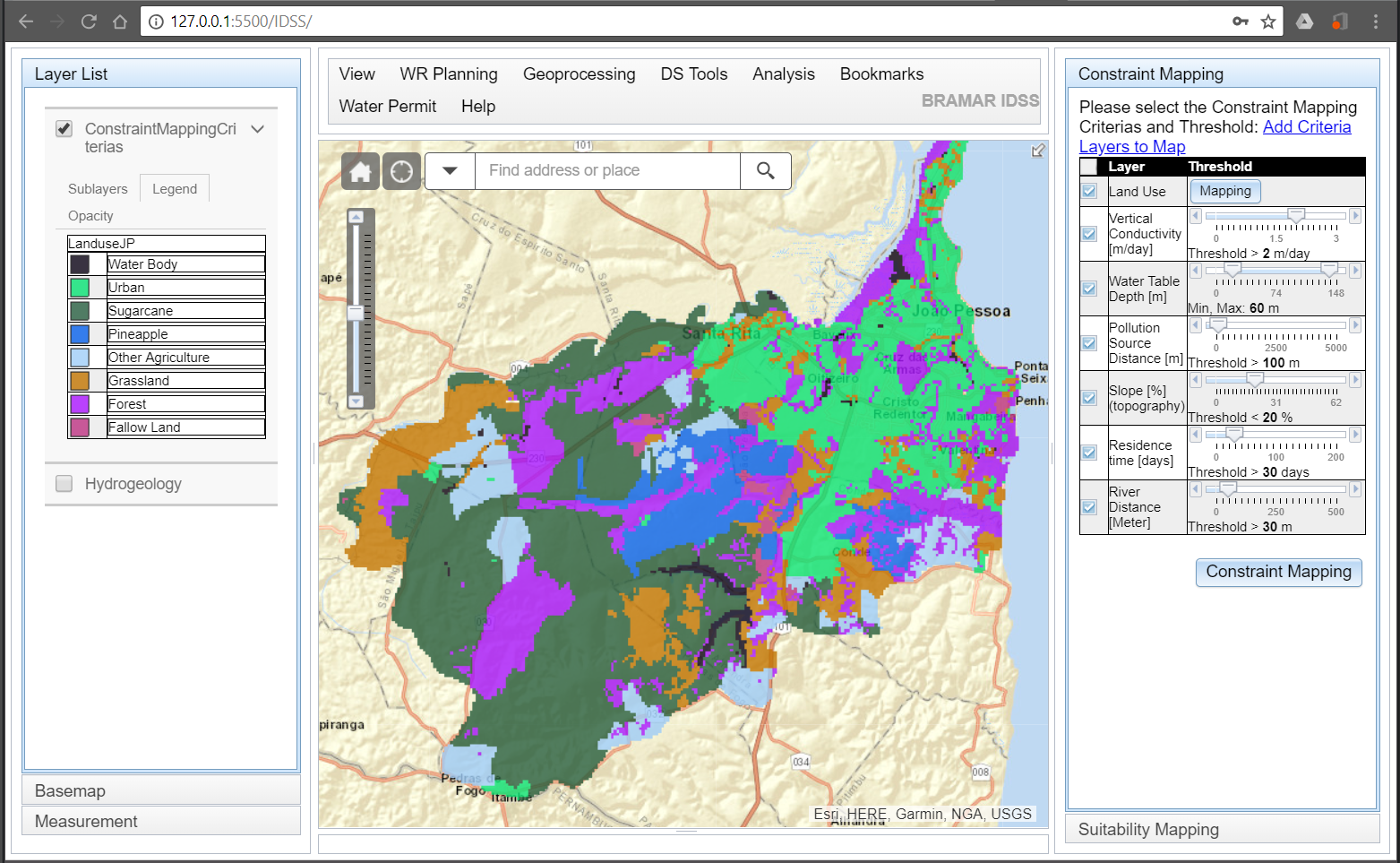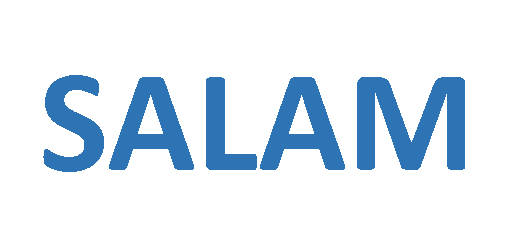Below follows information on RWC key projects and work in the Middle East and Brazil on IWRM implementation under water scarcity and decision support.
THE SALAM INITIATIVE – PHASE 2 (2020-2022)
Transboundary strategies to address the water deficit problem in the Middle East at the regional level.
RWC Services:
- Advising the water authorities of Jordan, Palestine and Israel on IWRM implementation, transboundary water management and decision support.
- Water budget calculations to determine the freshwater deficit and assess the water related conflict potential for regional demand centers
- Strategies for the transfer of desalinated seawater to Jordan and Palestine.
- Positioning of new seawater desalination plants on the Mediterranean coast of Israel
- Evaluation and comparison of project alternatives (water transfer, desalination, wastewater reuse)
- Concepts of hydropower generation and water-energy SWAP between Israel and Jordan.
- Development and use of tools for water management decision support.
We were able to demonstrate that water transfer, desalination and the use of innovative water technologies and renewable energy can be used to develop cost-effective and sustainable solutions for meeting water needs under water scarcity.

 The key products of the SALAM initiative were released in August 2022:
The key products of the SALAM initiative were released in August 2022:
| De Bourgoing, P., Nussbaum, P., Rusteberg, B., Sauter, M. (2022). The Salam Initiative: Transboundary Strategies for the Resolution of the Water Deficit Problem in the Middle East, Key products-Policy briefs, ISBN: 978-3-943647-10, pp.96. Link |  |
| De Bourgoing, P., Al-Karablieh, E., Sadah, M.A., Rusteberg, B. (2022). Future Freshwater Deficits in Palestine and Jordan, p.18-21. Link |  |
| Rusteberg, B., De Bourgoing, P., Bensabat, J. (2022). Water Production and Transfer Strategies, p.22-25. Link |  |
| Janowitz, D., Yüce, S., Margheri, M., Yakhoul, H., Bensabat, J., Rusteberg, B., Sauter, M. (2022) Innovative Water-Energy SWAP Concept between Israel and Jordan, p.33-36. Link |  |
| Bensabat, J., Rusteberg, B., De Bourgoing, P., Schär, S. (2022) Regional Macro-Model for Transboundary Water Resources Planning, p. 76-79. Link |  |
| De Bourging, P. ,Silva, G.S. da, Zintel, L., Rusteberg, B. (2022) SALAM Information and Expert System, p.86-89. Link |  |
| Rusteberg, B., Bensabat, J., de Bourgoing, P, Sauter, M, (2022) Assessment of Freshwater Strategies and Recommendations for Implementation, p. 92-95. Link |  |
A more detailed article on water transfer solutions in the Middle East was also published in August 2022 in the German trade journal Wasserwirtschaft (Water Resources Management) in a thematic volume on the SALAM initiative “Water Transfer in the Middle East”:
| Rusteberg, B., De Bourgoing, P., Bensabat, J. (2022). Grenzüberschreitender Wassertransfer aus der Meerwasserentsalzung im Nahen Osten (Transboundary Water Transfer from Seawater Desalination in the Middle East). Wasserwirtschaft, 112(7-8), 10-17. Link |

BRAMAR (2014-2018)
Water scarcity mitigation strategies and technologies in Northeast Brazil: water reuse, controlled groundwater recharge and Integrated Water Resources Management.
RWC Services:
- Advising the water authorities of the states of Pernambuco, Paraiba, Rio Grande do Norte and Ceará on IWRM implementation and decision support
- Water management strategies for river basins in NE Brazil
- GIS-based information and decision support system for water resources management
- DS tools for Managed Aquifer Recharge (MAR)
- Support for German industrial partners in technology transfer
Through close cooperation with the Brazilian National Water Agency and state water agencies, significant impulses for the sustainable and integrated management of surface water, groundwater and wastewater resources in the Northeast region of Brazil were generated.

 The results of the BRAMAR project were published as a book in English and Portuguese:
The results of the BRAMAR project were published as a book in English and Portuguese:
| Abels, A., Freitas, M.A.de S., Pinnekamp, J., Rusteberg, B. (2018): BRAMAR Project: Water Scarcity Mitigation in North-East Brazil, RWTH Aachen, ISBN (Engl. Ausgabe) 978-3-00-059926-2, pp.153. Link Abels, A., Freitas, M.A.de S., Pinnekamp, J., Rusteberg, B. (2018): Projeto BRAMAR: Mitigacao de Escassez de Água no Nordeste do Brasil, RWTH Aachen, ISBN (Port. Ausgabe) 978-3-00-059927-9, pp.155. Link |  |
| Rusteberg, B., Farias, C.B.de A., Almeida, C., Silva, G.N.S. da, Rufino, I.A.A. (2018) The BRAMAR Information and Decision Support System, p. 104-119. Link |  |
| Rusteberg, B., Freitas, M.A.de S. (2018) IWRM-Implementation in North-East Brazil, p. 120-144. Link |  |
SMART-MOVE (2015-2019)
Sustainable Management of Available Water Resources with Innovative Technologies
RWC Services:
- Advising the Palestinian Water Authority on IWRM implementation.
- Water resources planning in the Lower Jordan Valley.
- Identification and assessment of water resources management measures and alternative strategies to meet water demand.
- Application of water allocation models and analysis of water supply security
- Managed Aquifer Recharge (MAR) implementation
- Development of a IWRM implementation concept
- Assessment of conflict potential and need for freshwater imports
It could be shown that even after exploiting renewable and non-conventional water resources (brackish water and wastewater), water imports into the Lower Jordan Valley are necessary to meet the increasing water demand.

 The SMART book presents the key results of 12 years of multilateral IWRM research cooperation in the Lower Jordan Valley:
The SMART book presents the key results of 12 years of multilateral IWRM research cooperation in the Lower Jordan Valley:
| Lange, T., Rusteberg, B., Sauter, M. (2019). SMART: Sustainable Management of Available Water Resources with Innovative Technologies, Key products-Policy briefs, ISBN: 978-3-943647-10, pp.96. Link |  |
| Rusteberg, B., Sadah, M.A., Tamimi, A.R., Sauter, M. (2019). IWRM Concept and WEAP-Application, Cluster West, p.60-63. Link |  |
| Tamimi, A.R., Rusteberg, B., Samhan et al. (2019). Socio-economic and Political Context of Integrated Water Resources Management in the Lower Jordan Valley, p.64-67. Link |  |
| Walter, F., Rusteberg, B., Sadah et al. (2019). Managed Aquifer Recharge Planning for the Jericho-Auja Area, p.32-35. Link |  |
THE SALAM INITIATIVE – PHASE 1 (2017-2019)
Regional Strategies for Integrated Water Resources Management
RWC Services:
- Definition of development scenarios for Jordan, Israel and Palestine
- Preliminary assessment of future freshwater deficits at the national level
- Water production and transfer options based on seawater desalination in the Mediterranean and Red Sea
- Estimation of specific water costs (€/m³) for each project alternative.
In the pilot study for the SALAM initiative, proposals for water transfer projects, so-called water production and transfer options, were developed for the first time to cover the projected water deficits in Jordan and Palestine. It could be shown that the required large quantities of freshwater can be provided exclusively through seawater desalination.

Information on the results of the pilot study on the SALAM initiative can be found at (LINK to SMART in SALAM website) and in summarized form in the following policy brief:
| Rusteberg, B., Bensabat, J., Tamimi, A.R., Salman, A. et al. (2019). The SALAM Initiative: Concepts and Approaches for the Ressolution of the Water Deficit Problem in the Middle East at Regional Scale, p.74-76. Link |  |
